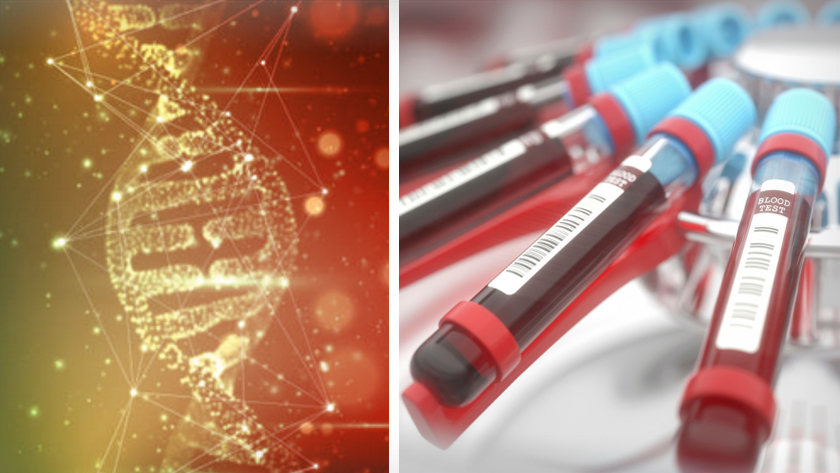
Adela, a start-up company launched out of UHN, is poised to advance precision-based, personalized medicine. Based on the cutting-edge research of Princess Margaret Cancer Centre Senior Scientists Drs. Daniel De Carvalho and Scott Bratman, Adela aims to create a future where multiple cancers–and other diseases–could be detected using a simple blood test.
A key aspect of Adela’s foundational technology is DNA methylation–a DNA modification frequently found in cancer cells of all types. During the DNA methylation process, a chemical group known as methyl attaches to the DNA, reflecting changes in cell behaviour, such as turning genes on or off. In cancer cells, DNA methylation patterns are disrupted, and this process is often associated with unregulated cancer growth. Paired with sophisticated machine learning algorithms, Adela’s platform mines millions of DNA methylation changes in the human body, creating powerful capabilities to diagnose a variety of cancers and other conditions with exquisite sensitivity.
“Adela’s technology has the potential to revolutionize how we detect and diagnose disease,” says Dr. Scott Bratman. “With Adela, we expect that from a blood draw, doctors will be able to diagnose cancer, monitor treatment response, and identify patients who are at a higher risk of relapse and might benefit from more aggressive treatment.”
With UHN’s unique in-house technology de-risking approach delivered with support from the Princess Margaret Cancer Foundation via the Princess Margaret Cancer Centre Innovation Acceleration Fund (IAF), Adela gained the confidence of five major investor partners: F-Prime Capital led the Series A financing together with OrbiMed, Deerfield Management, Decheng Capital, and RA Capital Management.
Building on multiple high-impact publications in Nature, Nature Medicine, and most recently Clinical Cancer Research, Adela’s recent Series A financing round is one of the biggest in Canadian biotech history. It will help the start-up achieve ambitious milestones aimed at bringing this convenient technology to patients with cancer, sooner.
“We are proud to have been part of the creation of Adela, helping commercialize its foundational, ground-breaking liquid biopsy technology,” said Brad Wouters, Executive Vice President, Science and Research, University Health Network.
“Spin-out companies like Adela at UHN are advancing global health while growing the biotech community and creating jobs in Toronto,” says Dr. Wouters. “Adela’s launch is a significant contribution to the Canadian biotech economy and beyond, and a true result of the world-class, transformational scientific work happening within UHN.
Source: UHN Technology Development & Commercialization (TDC)




